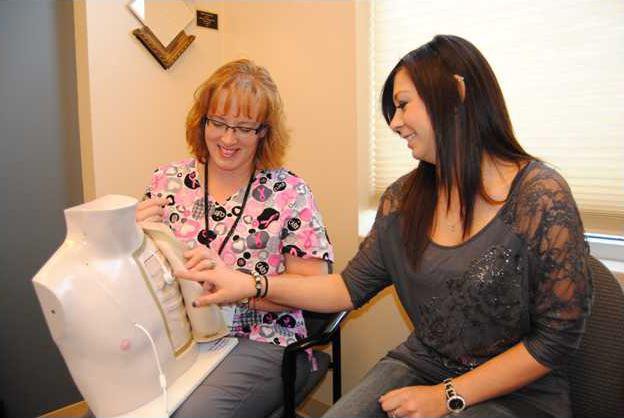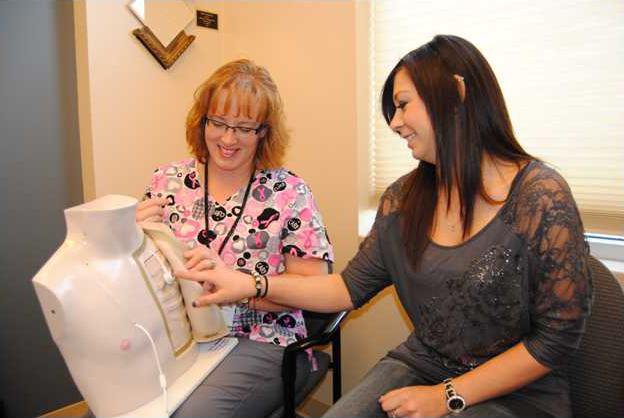The oncologists and nurses at Heartland Cancer Center understand that when patients are diagnosed with cancer, they become overwhelmed with all the medical terms and treatment possibilities.
While this information overload cannot be eliminated, it is being alleviated at the cancer center, 204 Cleveland. A private donation has paid for what is called a Chester Chest.
Chester is a mannequin version of a human chest, which is also equipped with an arm.
“We are using Chester to help our patients visualize how different drug-delivery lines and devices are inserted,” said Jamie Hutchinson, R.N. and director of the cancer center. “It is a valuable teaching tool and answers a lot of questions from patients and families.”
Specifically, patients learn about the port-a-cath, hickman line or PICC line, depending on their individual needs.
Hutchinson explained the basics of each.
The port-a-cath is a medical device inserted beneath the skin to connect to a vein. Drugs can be injected and blood drawn many times, which results in more convenience and less discomfort. There is also less chance of infection because it is under the skin.
A hickman line is a catheter that can remain for months or even years. It works very well when patients have a drug that runs for continuous infusion; it can be used to administer drugs and draw blood.
PICC stands for peripherally inserted central catheter.
The lines may be used for chemotherapy drugs, antibiotics or fluids.
“We also use Chester to teach our patients how to keep the area around the insertion clean,” Hutchinson said. “We can also teach how to change dressings but nurses usually take care of that.
“Patients who have become acquainted with Chester are more comfortable, knowledgeable and confident,” Hutchinson added. “All of us at Heartland Cancer Center appreciate the anonymous private donation that made this possible.”
St. Rose Ambulatory & Surgery Center owns the cancer center.
'Chester' teaches people about lines, devices





